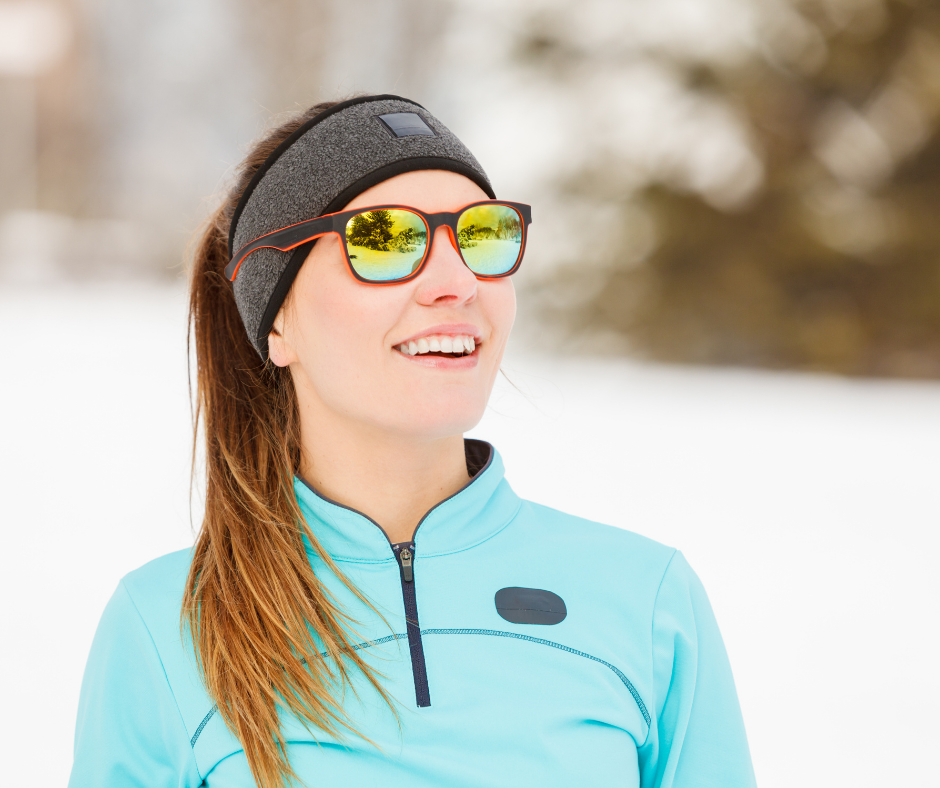Home » Blog » Why You Should Still Wear Sunglasses in Winter
Why You Should Still Wear Sunglasses in Winter
Posted by: Georgia Center for Sight

As the year draws to a close, winter is just around the corner. Many people believe the misconception that the sun’s UV rays are weaker or nonexistent during the colder months. However, the UV radiation still has just as much potential to damage your eyes as it does during the spring and summer.
In the winter, the sun’s rays are still intense even though the sun sits lower in the sky than during summer. According to the Mayo Clinic, “ultraviolet radiation from the sun can damage your cornea, lens, and other parts of your eye, including the eyelid skin. UV radiation from sun exposure can also be a contributing factor in the development of certain types of cataracts and possibly macular degeneration.”
Ultraviolet rays from the sun reach the ground no matter what season it is. Being in or on water, snow, or ice can increase the amount of UV radiation you receive. That’s why you don’t only need sunglasses at the beach or pool, but also when you hit the ski slopes or an outdoor ice rink in winter. Ultraviolet exposure is greater at higher altitudes, so skiers, hikers, and mountain climbers need to wear sunglasses during the winter as part of their protective gear. Many people are familiar with the unexpected “snow sunburn” that can blister the face and mouth on snowy slopes. This is further proof that the sun is stronger than you think it is, even in the coldest weather.
Research has shown that long hours in the sun without eye protection can increase your chances of developing certain eye diseases. That’s why the American Cancer Society recommends you wear sunglasses that block UV rays to protect your eyes and the delicate skin around them. The most protective glasses will block 99 to 100 percent of UVA and UVB rays, so be sure to check labels before you buy and look for the phrase “UV absorption up to 400 nm” or “Meets ANSI UV Requirements.” Polarized lenses help reduce glare, which is especially helpful for skiers and snowboarders wearing sunglasses in the winter.
At Georgia Center for Sight, we want to help keep your eyes healthy. To schedule an appointment with one of our experienced ophthalmologists, visit our website or call your local GCFS office today.
